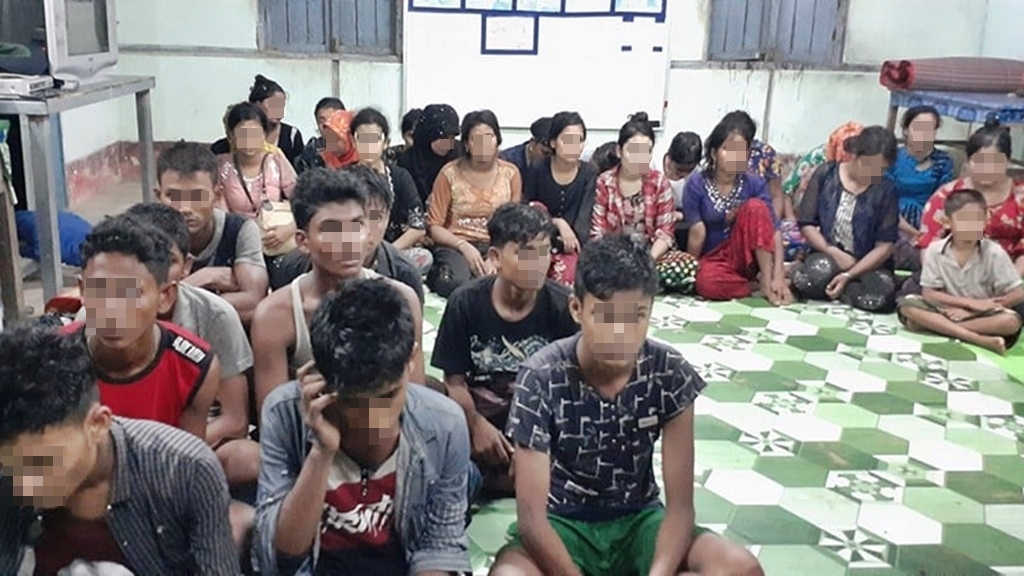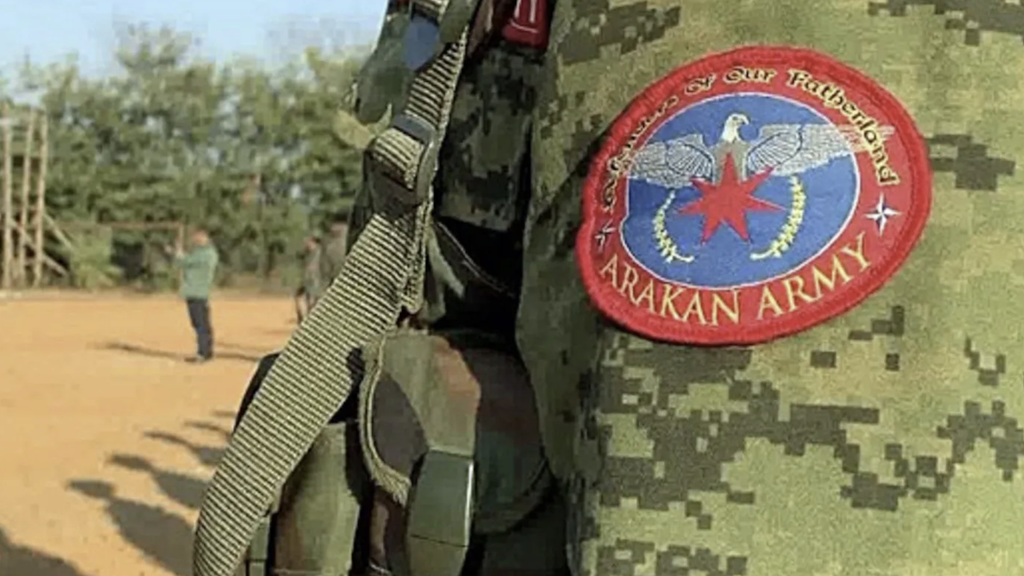
30 Rohingya Arrested For ‘Travelling Inside Their Own Country of Birth’ Myanmar
- 28/09/2019
- 0
By The Rohingya Post
“There is no humiliation and degradation worse than living inside the camps in our nativeland without any freedoms or hope for ourselves and our children. Probably, we are the only people in the world who are denied freedom of movement and frequently arrested for travelling inside our country of birth”
On September 26, Ayeyarwady Division’s Ngapudaw Township Police detained 30 Rohingya who were travelling to Yangon.
The young group made up of nine men, 20 women and a young boy, was intercepted in Ngayoke Kaung, Yaykyaw village tract after they left their Thae Chaung and Thetkeibyin villages of Rakhine State’s capital Sittwe.

They landed at the Ngayokekaung Bridge by boat where they were apprehended. They are now under being investigated and are planned to be transferred to a Pathein detention centre in Ayeyarwady Division.
“We don’t know the laws they have broken or how they will be charged. Depending on the investigation, the Immigration Department will decide… according to law,” General Administrator at Department of Ngayokekaung Township Myo Min Tun told RFA news.
After hearing the news of their detainment, the family members are “gravely concerned about them”.
A family member said, “They are going through various hardships with a scarcity of job opportunities and restrictions on their movements. As a result, they were seeking ways to find a better future.”
The restrictions on movement is the result of decades-old policies of discrimination placed on the Rohingya community, one of which is the 1982 Citizenship Law that stripped Rohingya of their citizenship and makes them subjected to severe human right abuses, that bear “the hallmarks of genocide”.
The denial of freedom of movement came into effect in early 1990s under Senior General Than Shwe’s military regime, and it is subsequently carried out by the successive military-back Thein Sein’s government and the civilian government led by Aung San Suu Kyi.
Since August 25, 2017, over 754,000 Rohingya were forced to flee into neighbouring Bangladesh after Myanmar Armed Forces (Tatmadaw) launched the massive scale of military campaigns which the United Nations found to have “the intents of genocide”.
Nearly 120,000 Rohingya are still confined to more than a dozen of Internally Displaced Persons (IDP) camps across Rakhine State since June 2012.
The community which was once considered an integral part of Myanmar Society contributing economically, socially, culturally and religiously, is gradually reduced to extreme poverty, illiteracy and subjected to gross human rights abuses such as arrests, tortures, land confiscation, arbitrary taxation, denial of freedom of religion, marriage, education, healthcare, and among others.
“There is no humiliation and degradation worse than living inside the camps in our nativeland without any freedoms or hope for ourselves and our children,” said a displaced Rohingya from a Sittwe IDP camp told The Rohingya Post.
“Probably, we are the only people in the world are denied freedom of movement and frequently arrested for travelling inside our country of birth,” he continued.
Aung San Suu Kyi’s government has been forcing the remaining Rohingya in Rakhine State to accept National Verification (NV) cards which promise to grant some forms of freedom of movement while erasing the self-identity of Rohingya by considering Rohingya as “immigrants” despite being born and lived in the state for centuries.
A handful of Rohingya who accepted the cards, still face restrictions on freedom of movement and often report of harassment and discrimination at the hands of immigration authorities.
The scheme designed to deny restoring the original Rohingya citizenship and whitewash the international community, has failed as the vast majority of Rohingya unanimously rejected the cards.
In September 2019, Fortify Rights publishes its report – “Tools of Genocide: National Verification Cards and the Denial of Citizenship of Rohingya Muslims in Myanmar”, which found that “Myanmar government is trying to destroy the Rohingya people through an administrative process that effectively strips them of basic rights. This process and its impacts lies at the root of the Rohingya crisis.”







